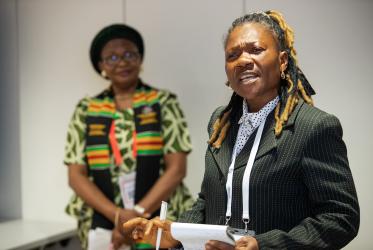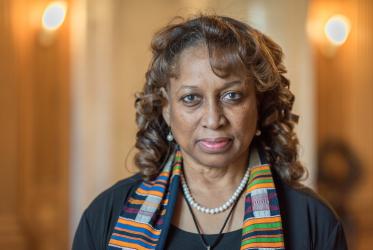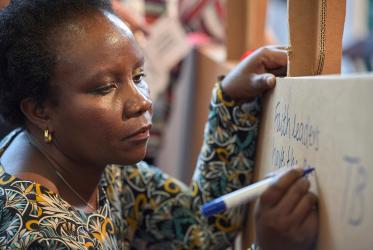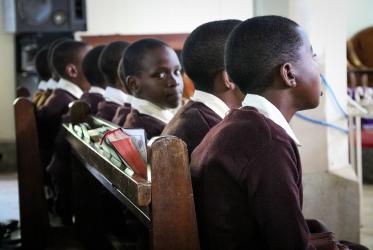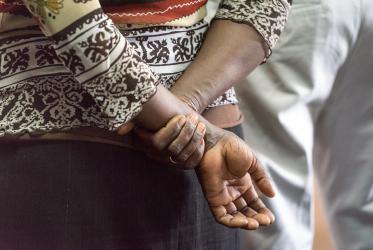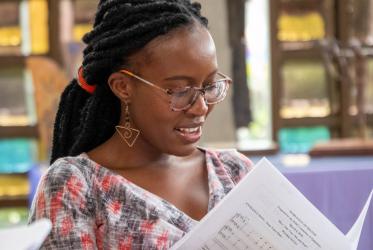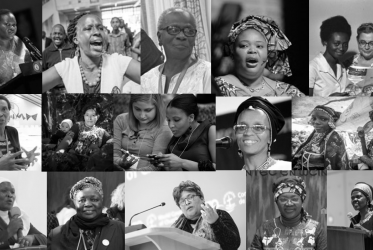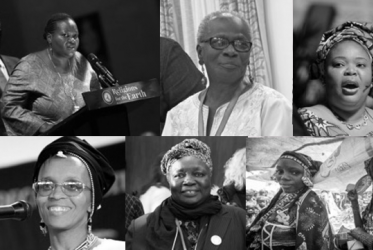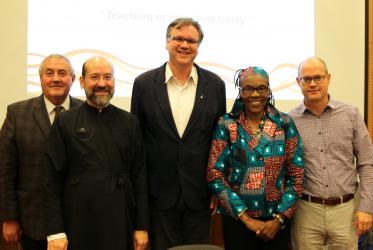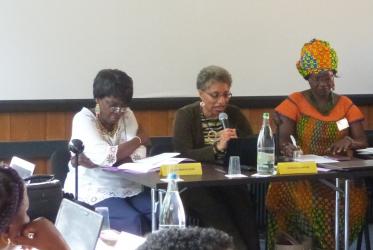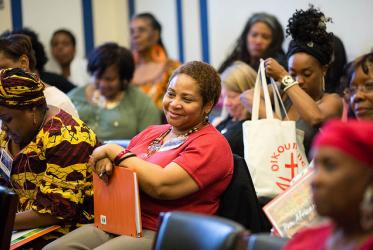Displaying 1 - 20 of 22
Ahead of Her Time
Pan-African Women of Faith and the Vision of Christian Unity, Mission, and Justice
01 November 2023
Pan-African women tell stories that celebrate who they are
15 September 2022
Rev. Dr Angelique Walker-Smith receives Figel Ecumenism Award
25 February 2022
Panel explores: How do we teach ecumenism today?
01 November 2019
Pan African Women of Faith issue fervent Call to Action
20 November 2018
Walker-Smith named president of Christian Churches Together
09 October 2018
"We have our work cut out for us"
10 August 2017
A safe space for sinners to change and for pain to be shared
03 August 2017
"Church has huge responsibility empowering women"
26 July 2017
Pan-African Women’s Ecumenical Network
10 - 14 July 2017
Château de Bossey, Bogis-Bossey, Switzerland


